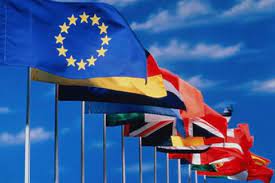
The EU countries have not yet been able to agree on the upper limit of duty-free imports of Ukrainian grain, as well as the need to extend restrictions to other products from Ukraine, the German edition of n-tv reported. “In the debate on the upper limit of duty-free imports of Ukrainian grain, the 27 EU countries continue to disagree,” the publication said.
The German media cite information from European diplomats who say that there is also no clear majority among member states on the European Parliament’s proposal to extend the restrictions on poultry meat, eggs and sugar from Ukraine proposed by the European Commission in January.
Polish Radio’s correspondent in Brussels, Beata Plomecka, also confirmed that the European Parliament, influenced by farmers’ protests across Europe, last week backed an amendment to the regulation on Autonomous Trade Measures submitted by Polish MEP Andrzej Galicki.
MEPs agreed to impose import restrictions on sensitive goods, notably honey, a range of cereals, poultry meat, chicken eggs and sugar.
Poland is also lobbying to tighten import quota requirements for Ukrainian sensitive agri-commodities by using data on Ukrainian imports not only for the years 2022-2023, but also 2021, before Russia’s full-scale invasion, when there were no massive shipments of agricultural products from Ukraine.
“However, this support is absent among member states. Only Poland and the ‘frontline’ countries are demanding that the demands of the European Parliament be taken into account. At best, most countries want to reduce from three weeks to two the Commission’s mandate to impose a ban on EU imports of products whose imports destabilize the market situation,” Polish Radio stressed.” Negotiations on a possible restriction of imports of Ukrainian agricultural products in the European Council are scheduled for Tuesday evening.
As reported, in many EU countries since January 2024 there have been mass protests of farmers, who express dissatisfaction with the “green” course of the European Commission and the rise in the price of material and technical resources. One of their demands is to strengthen control over alleged unfair competition from Ukraine. Farmers claim that Ukrainian products that were once destined for Africa or the Middle East now remain in Europe, undermining the position of local producers. They also point out that Ukrainian producers are not subject to the EU’s higher environmental and social standards.